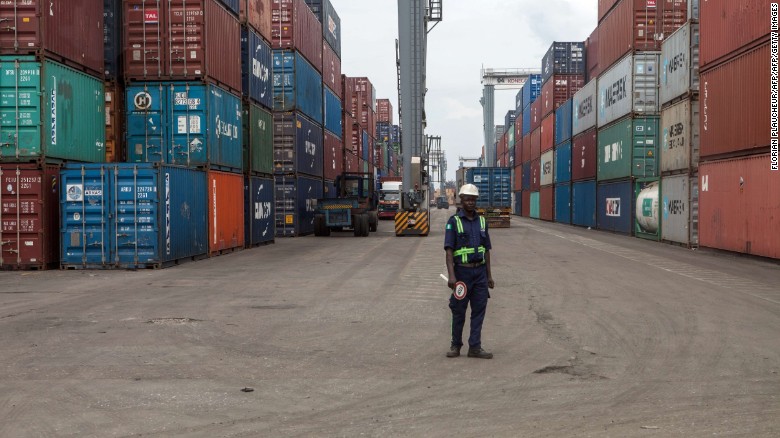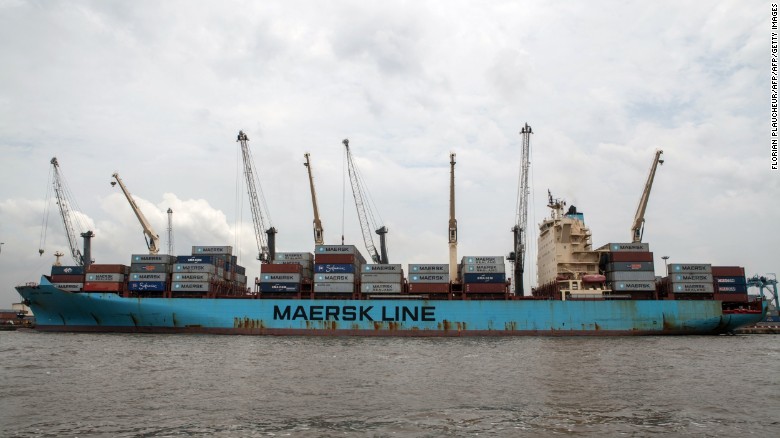Hadiza Bala Usman shot to prominence as a leading figure of the “Bring Back Our Girls” campaign, a driving force of what became a global movement to secure the return of 276 schoolgirls abducted by terror group Boko Haram.
Usman, 41, was internationally acclaimed for her role, and Nigerian President Muhammadu Buhari rewarded her with a fresh challenge: reform of the country’s unwieldy port network, as the first female managing director of the Nigerian Ports Authority (NPA).


Lagos Tin-Can Island container terminal in Apapa. The port sector is hamstrung by corruption and inefficiency.
Shutting down corruption
The NPA has almost 4,000 employees across six sites, which handle the majority of Nigeria’s exports and imports. But Usman says the system is dysfunctional.
“We noted a level of inefficiency attributed to a certain level of corruption,” she told CNN, emphasizing the need to close off “access and avenues where there would be a request for a gratification by public officials.”
Usman has moved swiftly to expose cases of fraud and recover lost public funds. She says that a greater role for automation is key to disrupting corrupt practices such as bribery for moving goods through the ports.
Fighting corruption should also increase the efficiency of operations, and Usman has set the ambitious goal of reducing wait times for containers in ports from 10 to three days.


The majority of Nigeria’s exports and imports go through its seaports.
Infrastructure upgrades
Progress is already being made, according to Martin Jacob, managing director of APM Terminals, the private company managing operations at Apapa Port in Lagos. Capacity has trebled since 2006, he says, and wait times have been cut from 35 to 10 days.
Both parties agree that investment is necessary to speed the process further. The NPA has allocated over $100 million for infrastructure improvements including upgrades to access routes on land and sea.
Business owners that use Nigerian ports are encouraged by the rate of improvement, but say there is ground to make up on global competitors.
“If you want to compare the ports today to 17 years back, of course today is like 100 times better,” says Mohamed Fouani, managing director of the Fouani Group, which distributes LG products. “(But) in many parts of the world they can clear their containers within 24 hours. Here we haven’t reached to this level of ease yet.”
With traffic through the ports set to increase in the coming years, which will prove critical to Nigeria’s economic recovery, Usman and the NPA face a challenge to reform the sector at speed.
The country, and the world, will follow her progress with great interest.
via CNN Africa
